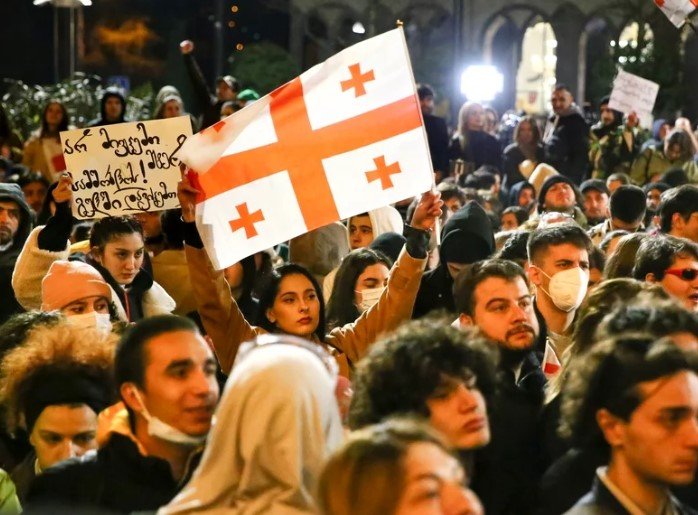Detainees Freed as Protests Lead to Political Concessions
Tensions in Abkhazia have reached a new turning point following the release of several opposition figures, arrested just days ago in the midst of mounting protests. The release of the detainees comes after a dramatic standoff involving protesters who had blocked key bridges in protest, demanding their freedom. This political exchange highlights the increasing strain between Abkhazia’s authorities and opposition groups, with protesters pressing for significant political change in the region.
The Arrests Spark Unrest
On November 11, five prominent opposition figures, including Omar Smyr, Garry Kokaia, Almaskhan Ardzinba, Ramaz Jopua, and Aslan Gvaramia, were detained by Abkhazian authorities. The official reasoning behind their arrest was their alleged involvement in unlawful activities against a member of parliament, Almas Akaba. Their detention came just days after former MP Tengiz Agrba had been arrested, leading to further protests and calls for his release as well.

The wave of unrest began after these opposition leaders, returning from a “public meeting” in Gudauta, were swiftly arrested and transferred to the de facto State Security Service. This sparked outrage among their supporters, who viewed the move as a politically motivated act aimed at stifling dissent. The protests quickly escalated, and on November 12, opposition supporters began blocking key bridges—Gumista and Kodori—demanding the detainees’ immediate release.
A Political Exchange: Bridges for Freedom
After hours of tension, the authorities agreed to release the detained oppositionists, in exchange for protesters lifting their blockade of the bridges. The situation began to defuse, and opposition members were freed, including the previously arrested Tengiz Agrba, whose release had also been a point of contention.
The protesters had made it clear that they would only open the Gumista Bridge once the detainees were freed. Their demands were met late that night, as the blockade was lifted, and tensions began to ease. The agreement has temporarily calmed the situation, but the underlying political disputes remain unresolved.
Growing Frustrations with Russia’s Influence
The political backdrop to these events is marked by escalating tensions between Abkhazia and Russia. Over the past several months, relations between the two have soured, particularly after Abkhazia’s refusal to pass key pro-Russian reforms. Moscow, in response, cut back its financial support to the region, a move that has deepened economic struggles in Abkhazia, where Russian assistance plays a crucial role in funding the government.
One of the main issues at the heart of this rift is a proposed investment agreement between Abkhazia and Russia, which would exempt Russian businesses from property taxes for a period of eight years. This agreement, signed in October, has been met with resistance from Abkhazia’s opposition, who argue that it would compromise the region’s sovereignty and undermine its autonomy. Representatives of the opposition were notably excluded from the discussions surrounding the agreement, further fueling their discontent.
The Road Ahead: Uncertainty and Political Pressures
Despite the temporary resolution to the bridge protests, the broader political situation in Abkhazia remains precarious. The release of opposition leaders may ease tensions for now, but the political divide between the government and opposition groups is unlikely to disappear. The ongoing unrest and the complex relationship with Russia will likely continue to shape the region’s future, as both sides navigate the challenges ahead.
The unfolding situation underscores the fragile nature of Abkhazia’s political landscape, where protests, arrests, and political maneuvering are increasingly defining the region’s daily realities.
